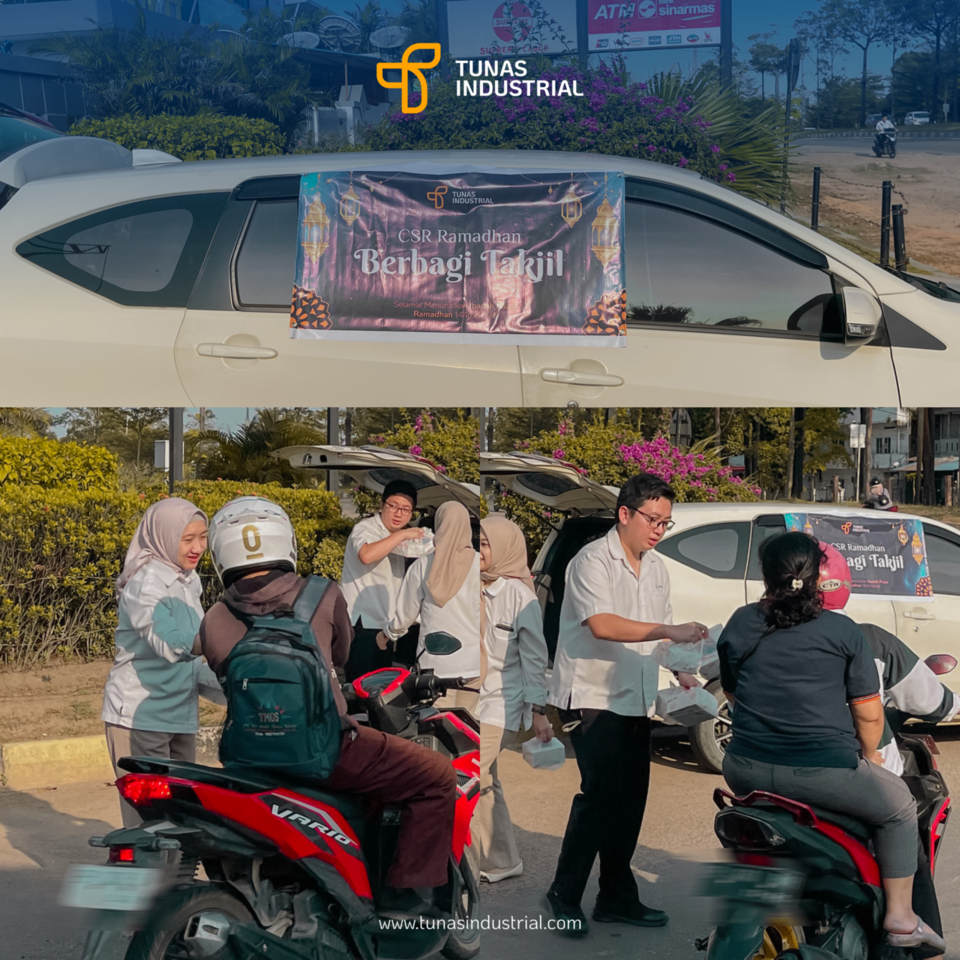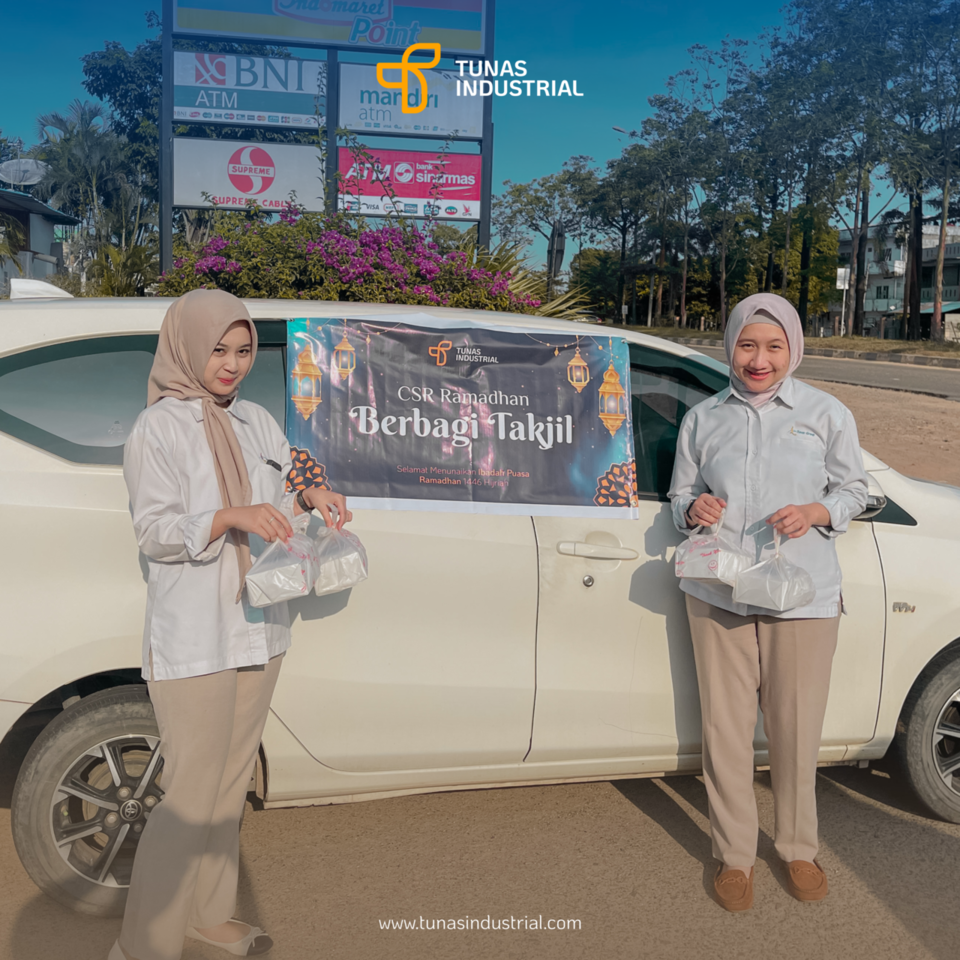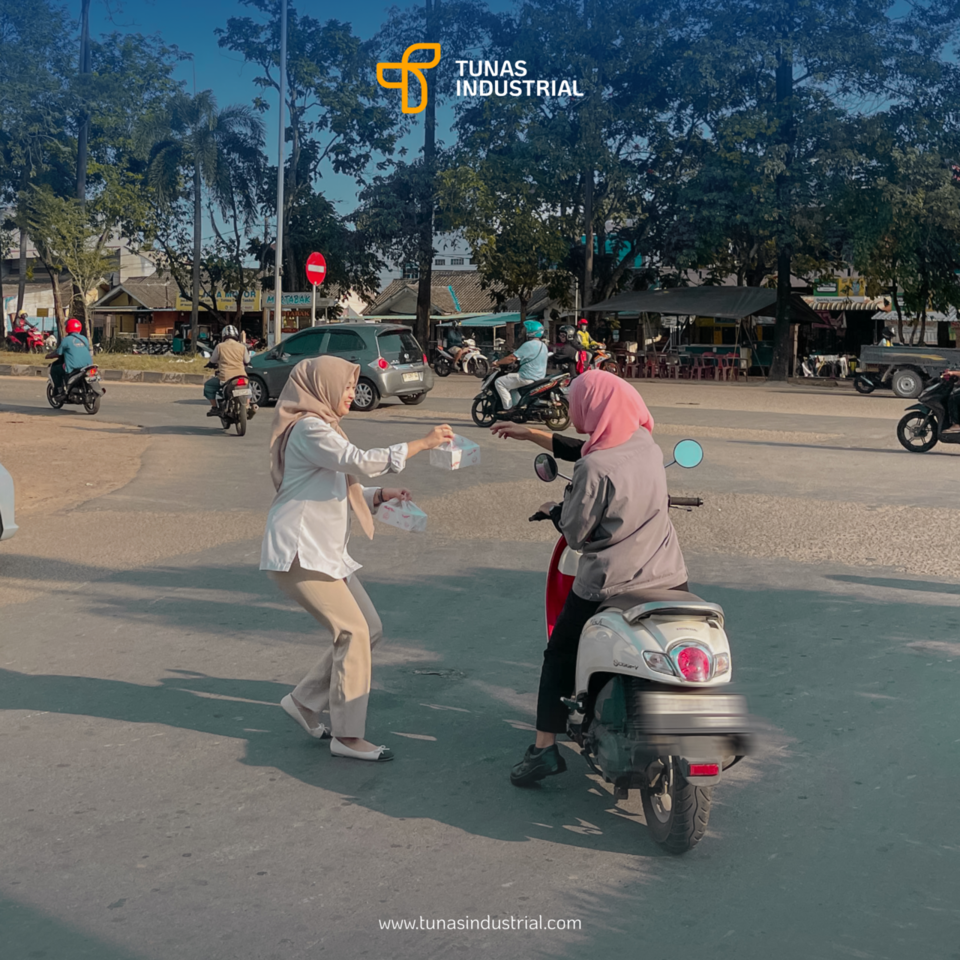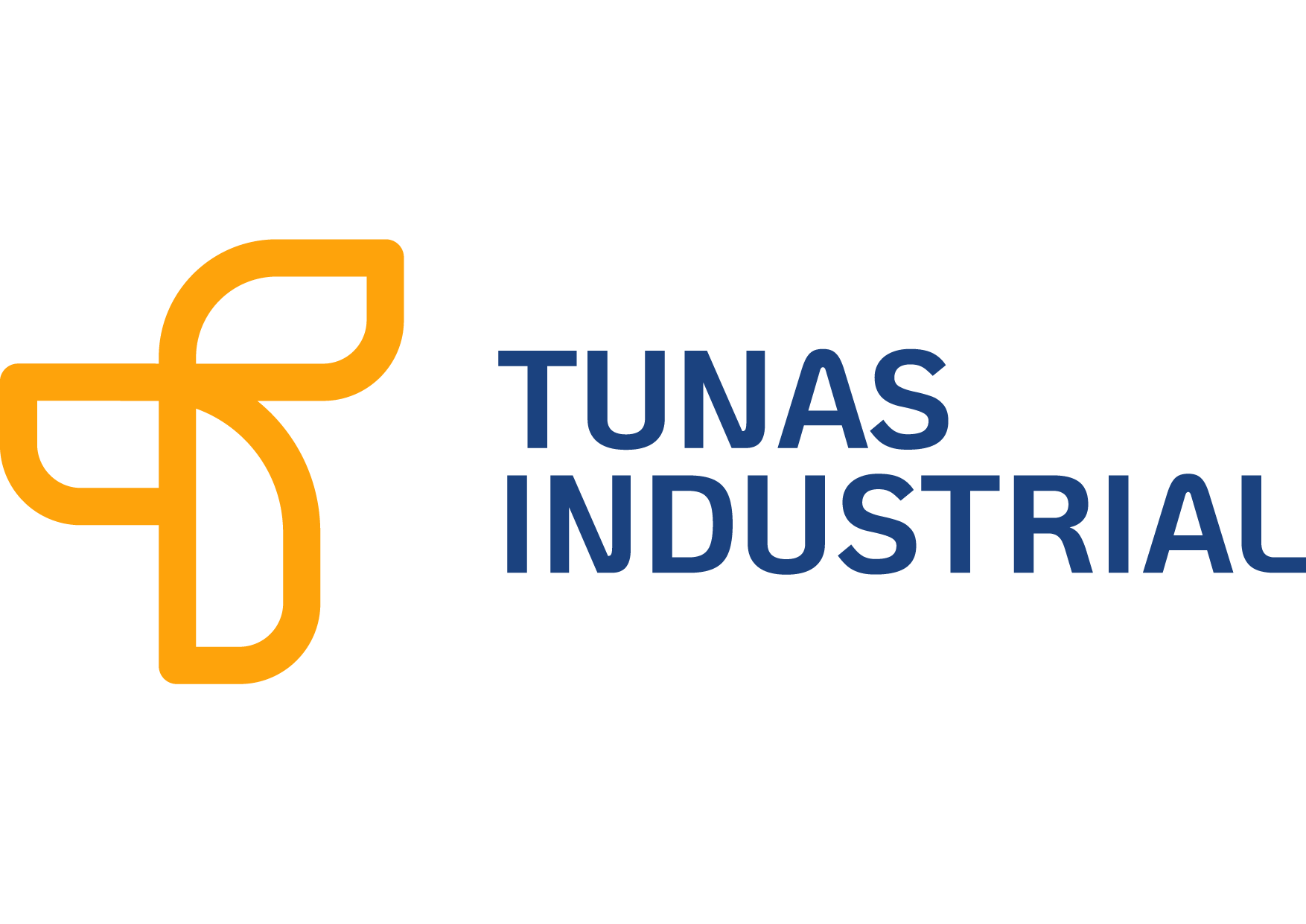
08 Mar
Spreading Joy of Ramadhan with Takjil Sharing by Tunas Industrial
Batam, March 8, 2025 – What better way to spread joy and unity during Ramadan than by sharing a simple yet meaningful gesture like takjil? On March 4th, 2025, in celebration of the holy month, the Tunas HR Department made a heartfelt effort to show love and kindness by distributing takjil to passersby near the front gate of Tunas Industrial Batam Center.
This initiative is part of the company’s commitment to corporate social responsibility (CSR), aimed at giving back to the community during the holy month of Ramadan. The act of distributing takjil – traditional light meals served to break the fast – is not only a symbol of generosity but also a reminder of the importance of kindness, compassion, and solidarity.
A Tradition of Giving Back
Ramadan is a time of reflection, self-discipline, and charity. For many, it is also a month of connecting with others and giving as one of the fundamental principles of Ramadan. Recognizing this, Tunas HR Department took the opportunity to engage in a CSR activity that directly benefits the local community. By providing takjil to those in need, we hope to foster a sense of community and strengthen the bonds of solidarity across different backgrounds.

“We wanted to contribute in a meaningful way and bring joy to the people around us,” said Edi Effendi, the head of the HR Department. “In the spirit of Ramadan, a small act like sharing takjil can create a big impact. It’s our way of showing appreciation for the support we’ve received from the community throughout the year.”
Strengthening Bonds of Solidarity
The act of sharing takjil not only nourishes the body but also nurtures relationships between Tunas and the community. As employees and residents gathered around the front gate of Tunas Industrial Batam Center, the simple act of giving became a powerful tool for building unity.

The company’s initiative was met with heartfelt appreciation. After a long day of fasting and work, the takjil distribution brought smiles to many faces. It wasn’t just about fasting during Ramadan; it was a reminder of the joy that comes from sharing and spreading kindness to others, making the day a little brighter for everyone.
Looking Forward
The success of this CSR activity has inspired us to continue finding ways to contribute to the community, not just during Ramadan, but throughout the year. With plans for future initiatives aimed at addressing local needs, our company remains committed to strengthening its relationship with the Batam community and beyond.
Through acts of kindness like the sharing of takjil, Tunas Industrial hopes to set an example of how businesses can play an active role in enriching the lives of those around them. The gesture may be small, but its impact is certainly felt far and wide. Let us all continue this spirit of giving and kindness, and spread joy to those around us, especially during this blessed month of Ramadan.

06 Mar
Understanding Ramadan: Its Significance and Impact on Indonesian Society
Batam, March 6, 2025 – Ramadan, the holiest month in Islam, holds profound significance for Indonesia, the country with the world’s largest Muslim population. This sacred month, while primarily a time for religious reflection, also deeply influences the social, cultural, and economic dynamics of the nation. In Indonesia, Ramadan is not only a time of fasting but also a period that strengthens bonds, fosters charity, and impacts various aspects of daily life. This article explores what Ramadan means for Indonesia, its importance, and the impact it has on Indonesian society.
Family and Community Bonds
A unique and cherished aspect of Ramadan in Indonesia is its remarkable ability to foster a sense of togetherness and strengthen bonds within families and communities. The communal nature of fasting allows families to unite and share in the experience, making the month even more special. In the evenings, families or friends gather to break their fast with a meal known as iftar or bukber (breaking fast together). This shared experience deepens the sense of unity and connection. Many also take this time to visit extended family members or friends, exchanging good wishes and enjoying meals together.
Community life thrives during Ramadan. Evening taraweeh prayers at mosques often attract large crowds, creating a sense of unity and collective worship. In towns and villages, traditional Ramadan activities such as takbiran (the chanting of the Takbir to mark the start of Eid) and sahur (pre-dawn meal) are conducted as part of the festive rituals, reinforcing the importance of solidarity in both worship and daily life.
Ramadan and Economic Impact
While Ramadan is a deeply spiritual occasion, it also has significant economic implications for Indonesia. The holy month brings changes in consumer behavior, especially in the retail and food sectors.
In the weeks leading up to Ramadan, many businesses see a surge in demand for goods such as clothing, food, and gifts, as Indonesians prepare for the fasting month and the celebration of Eid al-Fitr (Hari Raya), the festival marking the end of Ramadan. Markets are filled with special Ramadan promotions, food stalls, and street vendors selling traditional treats that are enjoyed during the month, such as kolak (sweet dessert made from bananas, coconut milk, and palm sugar), kurma (dates), and various savory snacks.
One of the most iconic traditions associated with Ramadan in Indonesia is Mudik, the annual homecoming journey that millions of city dwellers undertake to reunite with their families in rural areas for Eid al-Fitr. This mass migration, which peaks during the two weeks leading up to Eid, not only strengthens familial bonds but also plays a crucial role in stimulating the transportation, retail, and hospitality sectors. It’s one of the largest human migrations globally, creating both economic opportunities and a sense of national unity.
Cultural Traditions During Ramadan
Food holds a special cultural significance during Ramadan. From the pre-dawn meal sahur to the evening iftar, Indonesian households and street vendors offer an array of traditional foods, bringing people together over shared meals. Street markets bustle with vendors selling takjil—light snacks to break the fast—and delicacies such as kolak and nasi uduk, reflecting the diverse culinary heritage of the archipelago.

Ramadan in Indonesia is also a time to celebrate the country’s rich cultural diversity. Non-Muslim communities often show great respect for their Muslim neighbors’ fasting practices, and it’s not uncommon for different faiths to participate in the spirit of the season by contributing to charitable causes or joining in festive events. This mutual respect fosters a sense of national solidarity and highlights the country’s commitment to religious tolerance.
The End of Ramadan: Eid al-Fitr and THR
Eid al-Fitr (Hari Raya), the celebration marking the end of Ramadan, is one of the most important holidays in Indonesia. It is a national holiday and is widely celebrated by people from all walks of life. It’s a time for forgiveness, family reunions, and expressing gratitude for the strength and patience shown during the month of fasting.

A key component of the Eid celebrations is Tunjangan Hari Raya (THR), the annual holiday bonus that employers provide to their employees. According to the Undang-Undang Cipta Kerja (Omnibus Law), specifically Article 81, Number 28, Perppu Cipta Kerja which amends Pasal 88E UU Ketenagakerjaan, Tunjangan Hari Raya (THR) is one of the employee rights guaranteed by the employment regulations in Indonesia. This tradition not only brings financial relief but also allows Indonesians to enjoy a more comfortable celebration with family and friends. Many workers eagerly anticipate their THR, which plays a crucial role in making the Eid festivities more joyful for those of modest means.
| Duration of Service | THR Amount |
| 1 Month | Pro-rata, based on months worked |
| 12 Month | 1 month salary |
Ramadan in Indonesia is more than a time of fasting—it is a profound cultural and societal experience that touches every aspect of life. From spiritual reflection to familial bonds, from economic impacts to cultural traditions, Ramadan serves as a reminder of the values that unite Indonesians in faith and in life. It is a time of personal growth, compassion, and shared joy, making it a defining feature of Indonesian identity. Ramadan is not only a month of fasting but also a celebration of life, faith, and togetherness.
